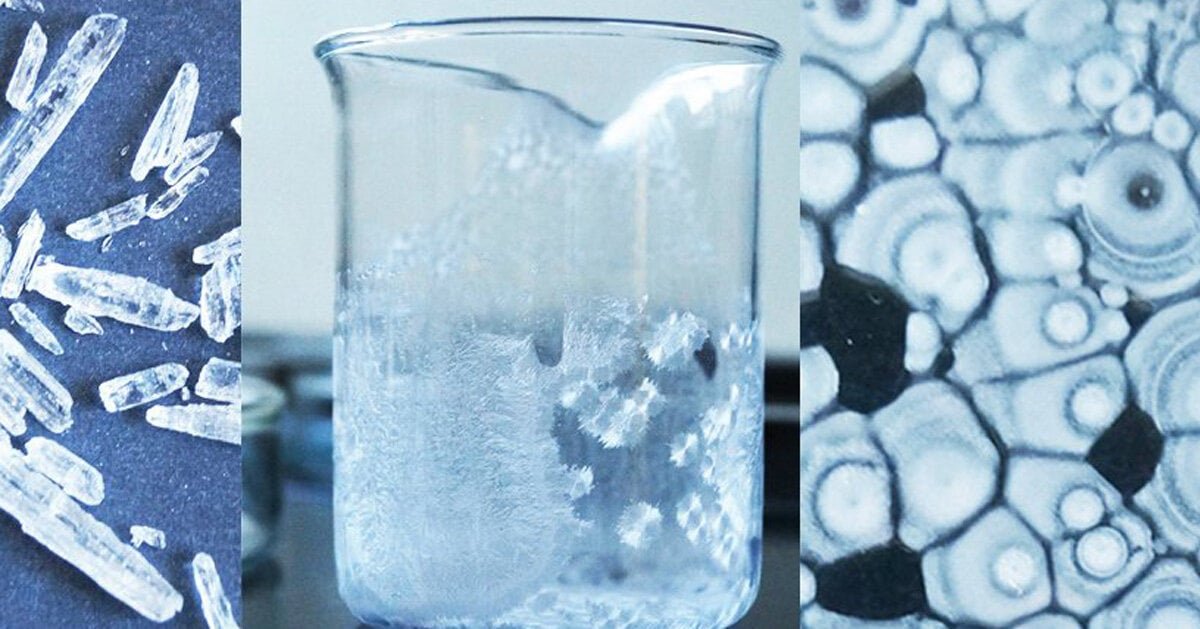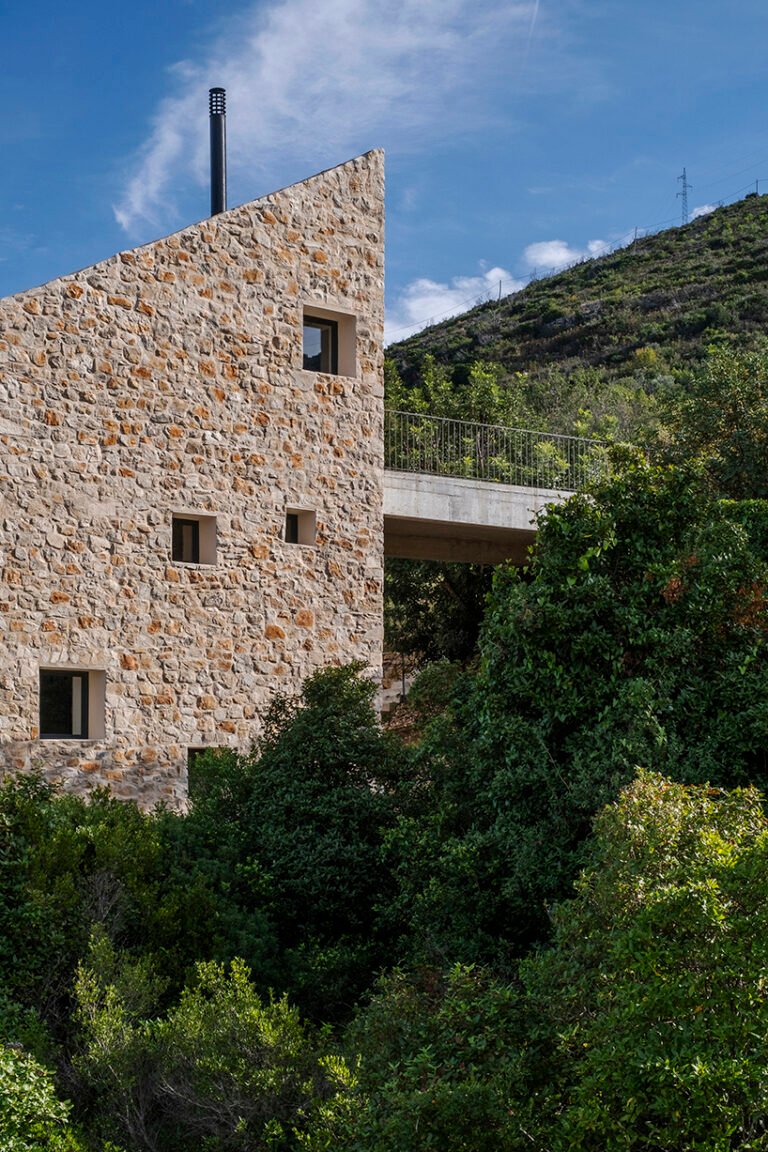katalin huszár’s ‘alchemy’ crystallizes raw chemicals into intricate glass jewelry
Katalin Huszár & Barbara Dénes uncover the beauty of nature
‘Alchemy’ is an experimental collection of crystalline jewelry pieces that defy notions of perfectionism and mass production. In a collaboration between Katalin Huszár and Barbara Dénes, the project seeks to uncover the distinctive beauty of nature for design. While focusing on the natural phenomenon of the process of crystallization, the design duo unites an explorative relationship between the unpredictability of nature and human intervention.
Raw materials such as caffeine, vitamin C, tartaric acid, and salicylic acid are used to tinge plexiglass and glass sheet surfaces, from which delicate crystals with unique characteristics emerge each time. Depending on the ingredient used, the textures of the grown crystals vary between a more geometric or fluffy surface.
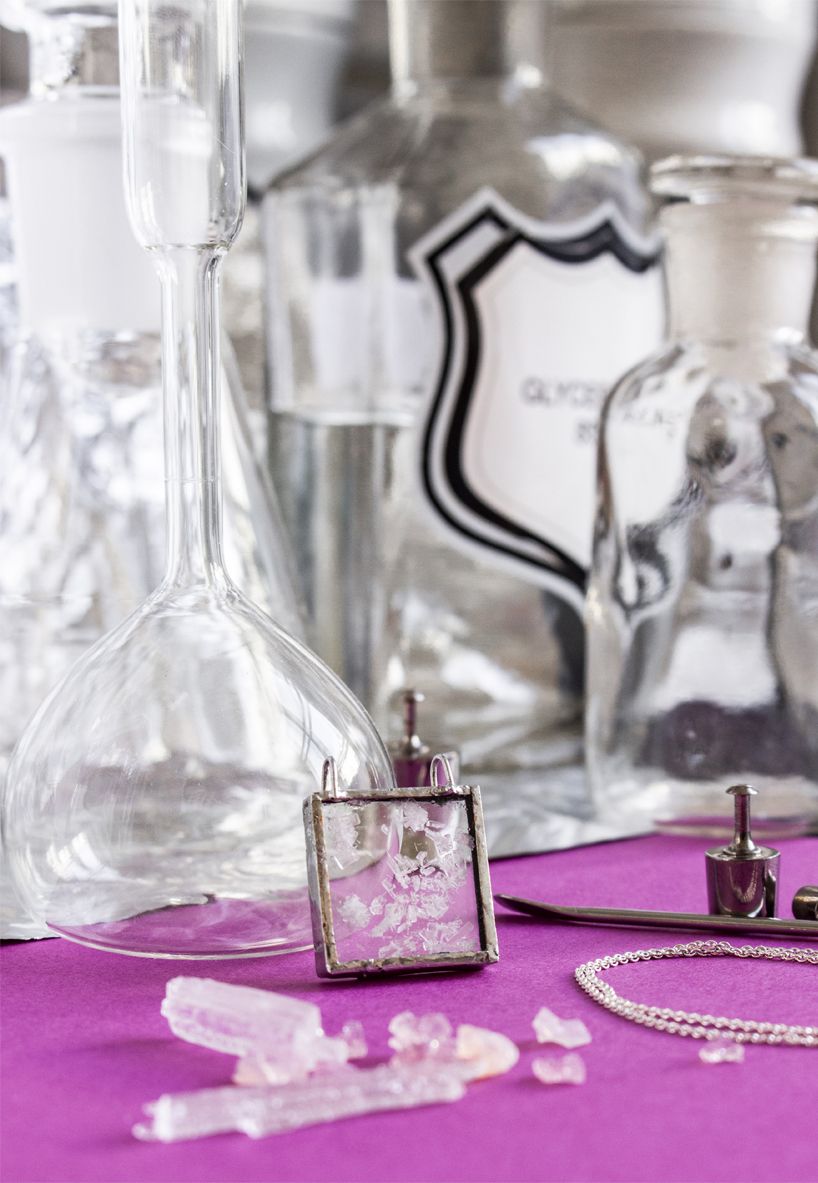
all images courtesy of Katalin Huszár
‘alchemy’: from acids to crystalline accessories
With their recent project, Hungarian designer Katalin Huszár and vegan jewelry brand owner Barbara Dénes capture the potential of each crystal and demonstrates their phenomenon in different experimental contexts. The main ingredients used to carry out the process are pure acids from pharmacies, which are then used to treat a number of glass surfaces.
The resulting patterns on the glass are influenced by several factors such as the dilution of the solution or the shape of the glass used at a starting point. These materials are then transformed into a final range of delicate jewelry pieces, each of which has their own unique character. The ‘Alchemy’ collection is available for purchase on the Plantethics website.
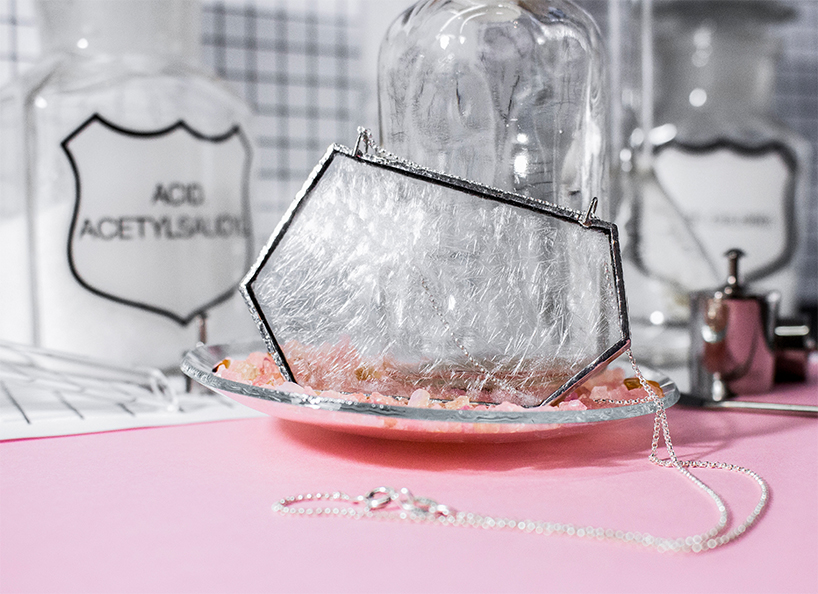
an intricately graphical appearance, as if it was hand-drawn with a needle-thin pen
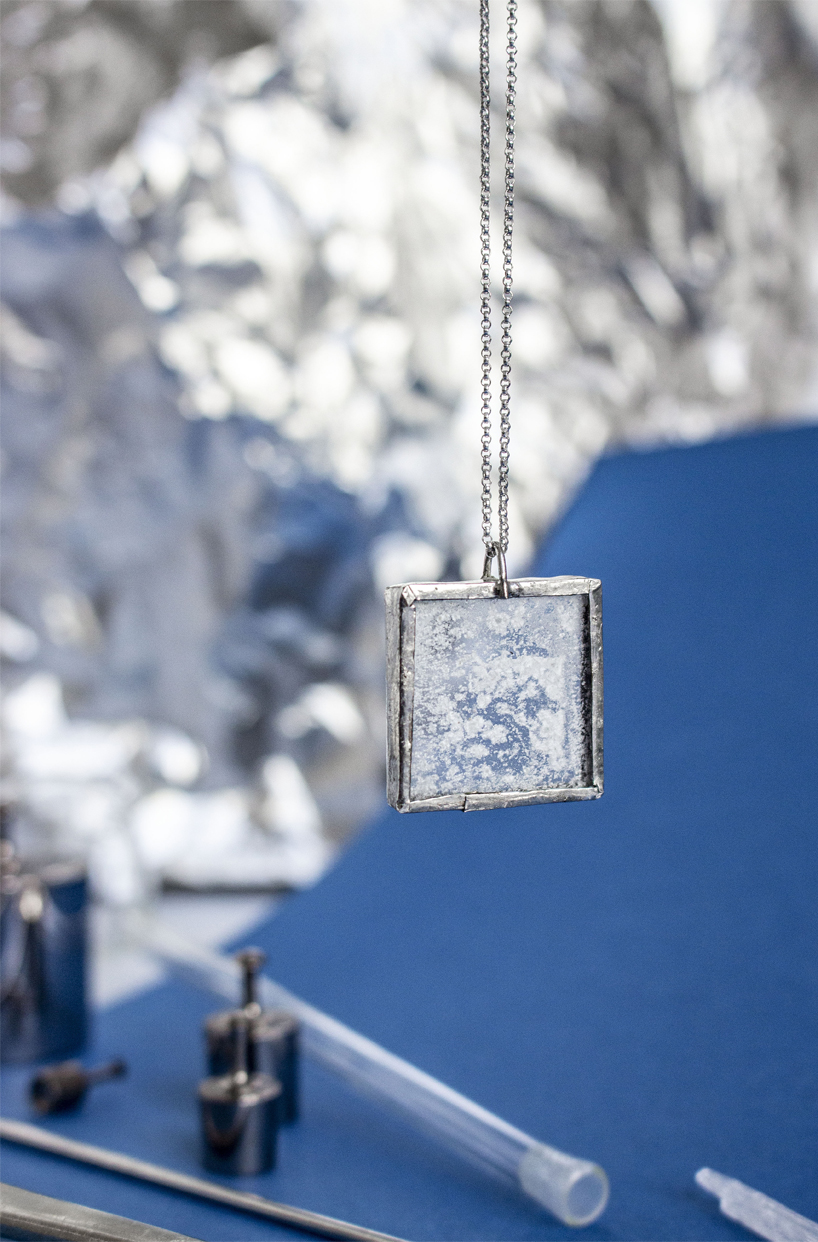
raw acids are used to tinge plexiglass for unpredictable outcomes

the textures of the grown crystals vary between a more geometric or fluffy surface.

